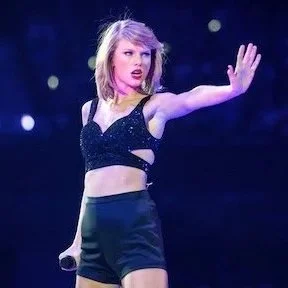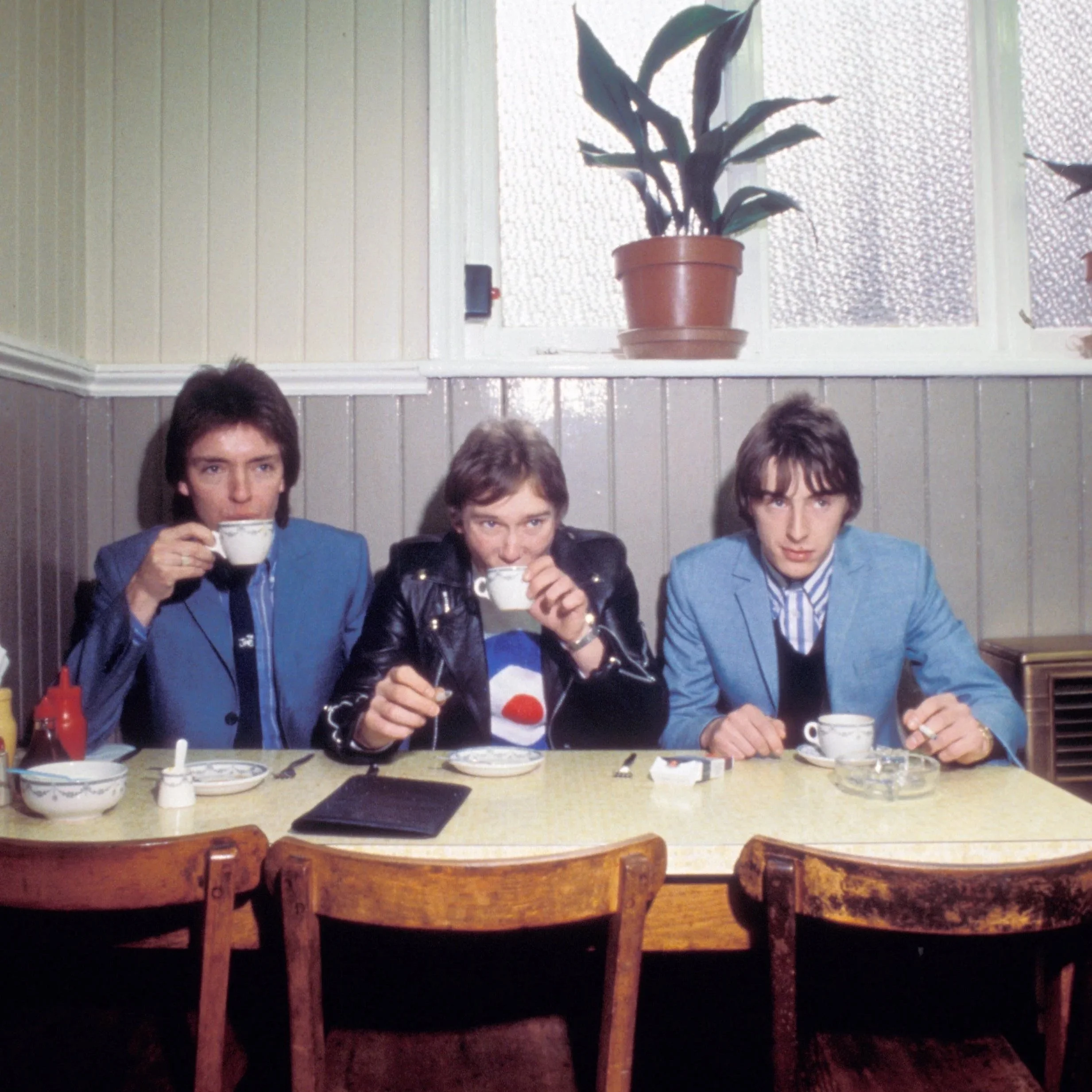
‘All the love we hide’: The forgotten lyrics to one of Pet Shop Boys’ greatest songs
ESSAY
On the 40th anniversary of its original release, we explore the forgotten coda to Pet Shop Boys’ single ‘Opportunities (Let's Make Lots of Money)’ and discover a haunting footnote to the story of 1980s Britain.
15 November 2025
Photo: PA Images / Alamy Stock Photo
BRITAIN’S POLITICAL LEADERS have spent quite a bit of time over the last 60 years trying to associate themselves with rock 'n' roll. Prime Minister Harold Wilson wooed the Beatles, controversially nominating them for MBEs, and two decades later Neil Kinnock, then leader of the Labour Party, appeared in Tracey Ullman’s music video for ‘My Guy’, dad dancing in front of a tower block. In the 1990s two British prime ministers tried to make political hay out of Britpop. In November 1996, in tacit reference to the likes of Blur and Oasis, John Major triumphantly declared ‘our pop culture rules the airwaves’ and a year later, Tony Blair invited Noel Gallagher to 10 Downing Street. Even Enoch Powell, one of postwar Britain's most notorious politicians, got in on the act. Backstage at a television show at the end of the 1960s, Powell crossed the room to shake hands with Bill Haley. Asked afterwards why he was so interested in meeting a middle-aged former rock 'n' roll star, he replied, incredulously, that Haley was the ‘most influential character of our age.’
Margaret Thatcher, meanwhile, had no time for pop culture bandwagoning. She refused an invitation to address the vast crowd at Wembley Stadium at the start of Live Aid and chose not to waive the VAT on Band Aid’s charity single, ‘Do They Know It's Christmas’. Her interview with teen pop music magazine Smash Hits in 1987 read like an attempt to recast pop culture luminaries as characters in some mediaeval morality play. Ginger Rogers and Fred Astaire were ‘jolly hard-working,’ she explained, and Elton John ‘highly professional.’
1980s artists returned the Iron Lady's lukewarm attitude with outright hatred. Whether motivated by her brutal decimation of Britain's manufacturing industries, or her Mary Whitehouse-adjacent morality, pop stars queued up to launch their attacks. The left-wing collective Red Wedge was formed, counting Billy Bragg, Paul Weller and the Communards as members, and the Specials lamented the empty shell inner cities left behind by Thatcher's manufacturing inefficiency purges in ‘Ghost Town’. The Beat called for her resignation in ‘Stand Down Margaret’, Crass critiqued her actions in the Falklands War with ‘How Does It Feel to Be The Mother of a Thousand Dead’ and in 1987 Morrissey dreamed of ‘Margaret on the Guillotine.’
And then there were Pet Shop Boys. In a decade in which perma-tanned, finger-clicking Wham! danced about in ‘Choose Life’ T-shirts and Michael Jackson’s moonwalking drew gasps and screams, Pet Shop Boys looked on enigmatically, barely moving a muscle and smiling even more rarely. But with their blend of sharp intelligence, postmodern play and anthemic synth-pop, they still had their inimitable say about Thatcherism and its consequences.
In 1986, from British kitchen radios and bedroom cassette players came the sound of pounding industrial percussion and huge sunbeam synth chords. Delivered in a trademark crisp and dry Neil Tennant vocal, the lyrics to ‘Opportunities (Let's Make Lots of Money)’ took the form of a brash sales pitch, from someone flaunting themselves as a potential business partner. The unabashed ambition to get rich quick and references to shady dealings brings to mind 1980s stockbrokers, car dealers and estate agents. In the protagonist’s dubious boasts (‘I studied at the Sorbonne… I could've been a don’), we also glimpse the future we now live in, a media world of self-invention, where you are what you say you are. Enduring far longer than the more pointed attacks on Thatcher from Morrissey, The Beat, Crass and the rest, the single reached number 11 in the UK number 10 in the US.
“My best friend was diagnosed with AIDS in 1986 and the song is a description of a conversation we had.” — Neil Tennant, OUT magazine
Less well known, however, is the original version of the song, released four decades ago this year, on 1 July 1985. Its UK chart position of 116 probably reflects the less punchy production. The accompanying music video is a choice example of a genre which, in the 1980s, often looked like the costume department had been raided by a drunken mob and the choreography led by someone on LSD. In a car park, Neil Tennant is standing in a manhole dressed in a designer suit, glasses and Homburg. Behind him is a Cadillac with its headlights on. What on earth was the song’s ‘dodgy geezer’ lead character doing with his head sticking out of a hole in the ground, and why was there a car behind him, apparently waiting to run him over? Even more inscrutable was the video’s ending, which accompanied the original song's forgotten coda.
As the music comes to a dramatic stop, leaving only the drone of the final chord, we watch Neil Tennant dissolve. All that's left afterwards is a clothes hanger, holding his suit jacket and shirt; then the clothes hanger and clothes vanish, and the Cadillac drives over the now empty hole and out of shot. The sequence is accompanied by Neil Tennant intoning: ‘All the love that we had and the love that we hide / Who will bury us when we die?’ If the song was sardonic and the video absurdist, then this was an abrupt tonal shift into something altogether darker.
In a 2009 interview with OUT magazine, Neil Tennant described the moment AIDS first entered his life, and how it inspired the song, ‘It Couldn’t Happen Here.’ ‘My best friend was diagnosed with AIDS in 1986,’ Tennant explained, ‘and that song is a description of a conversation we had. I remembered him saying in the very early days that AIDS was not going to happen in Britain for various reasons. And we were being a bit complacent about it.’ Pet Shop Boys would go on to write a number of songs about AIDS, the most poignant perhaps being ‘Your Funny Uncle’, inspired once again by Tennant's personal experience. At the funeral of the best friend who had died of AIDS in 1986, Tennant noticed the deceased’s uncle looking around at his nephew's gay friends and piecing the cause of his death together.
As the 1980s ran on into the 1990s, education began to dispel the ignorance and pop songs’ once vague references to AIDS became clearer. By 1990 Neneh Cherry’s ‘I Got You Under My Skin’ included the lines, ‘Caught by a plague slowly they fade / From immune deficiency you see called AIDS.’
But this was the summer of 1985. At Live Aid that year, as the whole of Wembley Stadium did the double handclap during Queen’s ‘Radio Ga Ga’, Mercury looked back at the audience having already experienced symptoms associated with HIV. It was a time when misunderstanding generated huge amounts of fear, when the HIV virus was still referred to as the ‘gay plague’ and ‘gay cancer’. No wonder Pet Shop Boys’ brief spoken word piece was hidden away in a coda. For a duo who so often seamlessly blended irony and sincerity, this was a rare example of straightforward honesty.
Scholarly articles and academic tomes might best remember history’s complexity, but songs recall the past’s emotions and moods with visceral power. Whether it be Noel Coward’s Jazz Age songs, the Beatles’ Summer of Love anthem, ‘All You Need Is Love’ or Pet Shop Boys’ ‘Opportunities’, there is an unofficial list of songs which soundtrack the history of 20th century Britain. And the coda to the original version of ‘Opportunities’ should be added to the inventory as an important footnote. ‘All the love that we had and the love that we hide / Who will bury us when we die?’ It testifies to the gay community’s fear and helplessness during the early years of the AIDS pandemic, when all around it was ignorance, hate and hostility.
© 2025 State of Sound. All Rights Reserved
MORE ESSAYS
THE BIG IDEA
by David Rea
13 September 2025
ESSAY
by David Rea
20 September 2025
OPINION
by David Rea
25 October 2025



